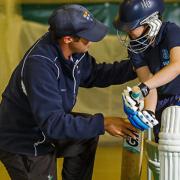There is no denying the tablet computer is a wonderful thing.

Robin Gainher, headmaster at Beeston Hall School at West Runton, shares his thoughts on the use of technology in education.
There is no denying the tablet computer is a wonderful thing. They can be affordable, easy to use, portable, and they offer sufficient computing power for the majority of owners. According to some recent research, 3.2 million children are using tablets in the UK.
This increased usage is also reflected in UK classrooms. There has been much rhetoric recently about instilling the younger generation with computer coding skills to make them as employable as possible when they leave school. Undoubtedly tablets have their place in education and children find them more “fun” to learn on. Indeed tablet manufacturers are designing models specifically for schools, boasting features like toughened glass, sturdier cases, and they come loaded with some of the best educational apps on the market.
Teachers need to make sure that in the face of this burgeoning tablet usage that basic skills such as touch typing and popular office usage are key skills employers will still be looking for in five years time and these will be what the majority of children rely on in the workplace. As such they should be as embedded a skill as reading, writing or arithmetic. Otherwise we face a whole generation of children lacking in basic IT skills they need to get ahead in the workplace.
As a last thought, all exams are still taken using a pen and pencil. We will be doing our children a great disservice if we also neglect the fundamental skills of being able to write with a pen. Let us forget this at our peril!
School’s out for summer
For generations of children, the school bell on the final day of term has signalled the start of six uninterrupted weeks of summer fun and freedom.
But under government proposals, the traditional long school summer holiday could become a thing of the past, with head teachers currently debating moving to a six-term school year.
Although children would still have the same number of weeks holiday, the summer holiday would be cut to four weeks, the other two weeks moved to alternative times. There will be a consultation of parents and teachers before any changes are made, but if it is agreed, the new holiday system could come into force as early as next September.
There are many reasons for the proposals, not least the spiralling cost of family breaks during schools holidays. Following the government’s decision to fine parents for taking their children out class during term-time, the issue has become a talking point. It is hoped that by enabling schools to decide term dates, it will lessen the concentrated peak time for holidays and consequently reduce prices.
In Norfolk, school representatives, head teachers and teaching organisations are currently discussing the proposals, but the aim is to set dates countywide.
A Norfolk County Council spokesman says: “The head teachers’ associations in the county are working to develop a shared model for school term dates for 2016/17, to help ensure that there is continuity between schools and to support joint working and help parents, who may have children at more than one school.”
What do you think? Should holidays be spread more evenly throughout the school year or do children need the longer six week break to recoup with their family? Email norfolkmagletters@archant.co.uk or write to EDP Norfolk magazine, Prospect House, Rouen Road, Norwich, NR1 1RE.



























